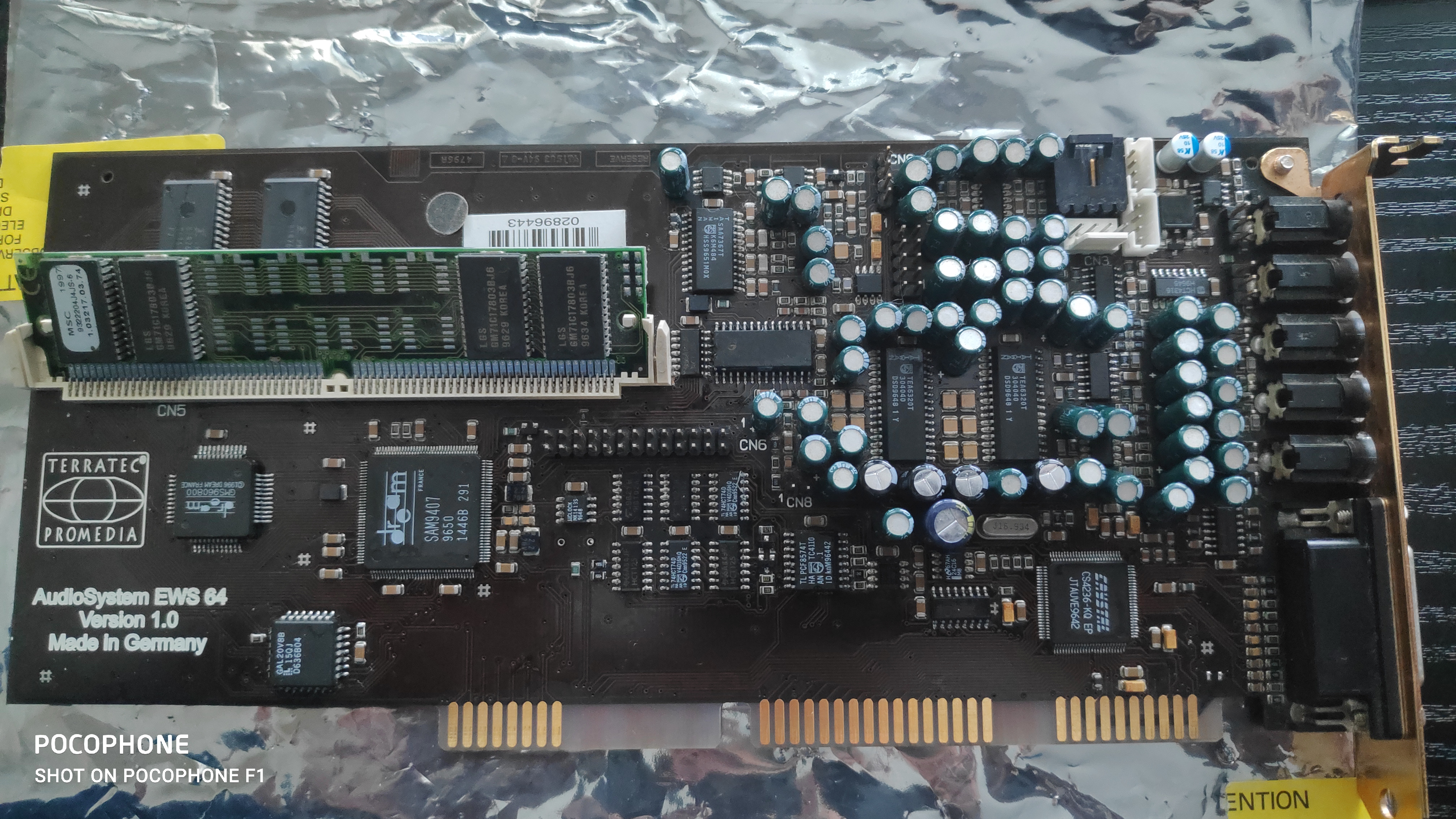EWS64L and EWS64XL
The EWS64L and EWS64XL cards support Ad Lib, Sound Blaster, Sound Blaster Pro, Windows Sound System 2.0, and General MIDI and GS with loaded sound fonts.
|
Released | 1999 |
| Bus | ISA 16-bit | |
| FM Synth | (embedded in CS4236B) | |
| Audio Codec | Crystal CS4236B | |
| Standards | Ad Lib, Sound Blaster, Sound Blaster Pro, Windows Sound System 2.0, General MIDI, Roland MPU-401 | |
| Ports | Speaker-Out, Line-Out, Line-In, Mic-In Game/MIDI port |
|
| CD-ROM | IDE | |
| Wavetable | Dream SAM9407 + wavetable header | |
| Plug & Play | Yes | |
| FCC ID(s) | ||
| See Also | Profimedia Maestro 16/96, Profimedia Maestro 32/96 |
As with the other higher-end cards from Terratec (Profimedia Maestro 16/96 and Profimedia Maestro 32/96), the EWS64 came with an onboard wavetable, courtesy of the Dream SAM9407.
The cards are able to record and playback 49 kHz at 16-bit resolution. They both come with 2 MB of RAM onboard for sample loading (there is no ROM so samples must first be loaded), but this can be extended via the SIMM slot by up to 64 MB. On the wavetable side, the cards also come with an effects processor.
The sound font format used by the EWS64 is .94B files. The original CD has a converter to allow you to convert any soundfont files from .TTS, .DMF or .DLS format into .94B format.
The XL adds to the L by featuring a 5.25" module that contains two DIN sockets and other digital connections to allow other MIDI devices to be connected, including two S/PDIF digital outputs and one S/PDIF digital input. It has a built-in 1W control amplifier and a 6.3mm headset jack. The XL can also playback at 20 bits digitally, comes with a WaveBlaster-compatible wavetable header.
The EWS series of audio cards came with instrument editing software from Terratec called Ed!son. Ed!son allows you to develop your own instrument sounds, and saving them as MIDI instruments. It can even take the sound of any instrument from an existing wave file to use as a starting point.
The EWS64L and XL boast a signal-to-noise ratio of -93 dB, though in playback tests conducted by PCAVTech, it got a Signal-to-Noise ratio of just -67dB, which isn't great.
Board Revisions
Competition
In the Media
Setting it Up
Downloads
